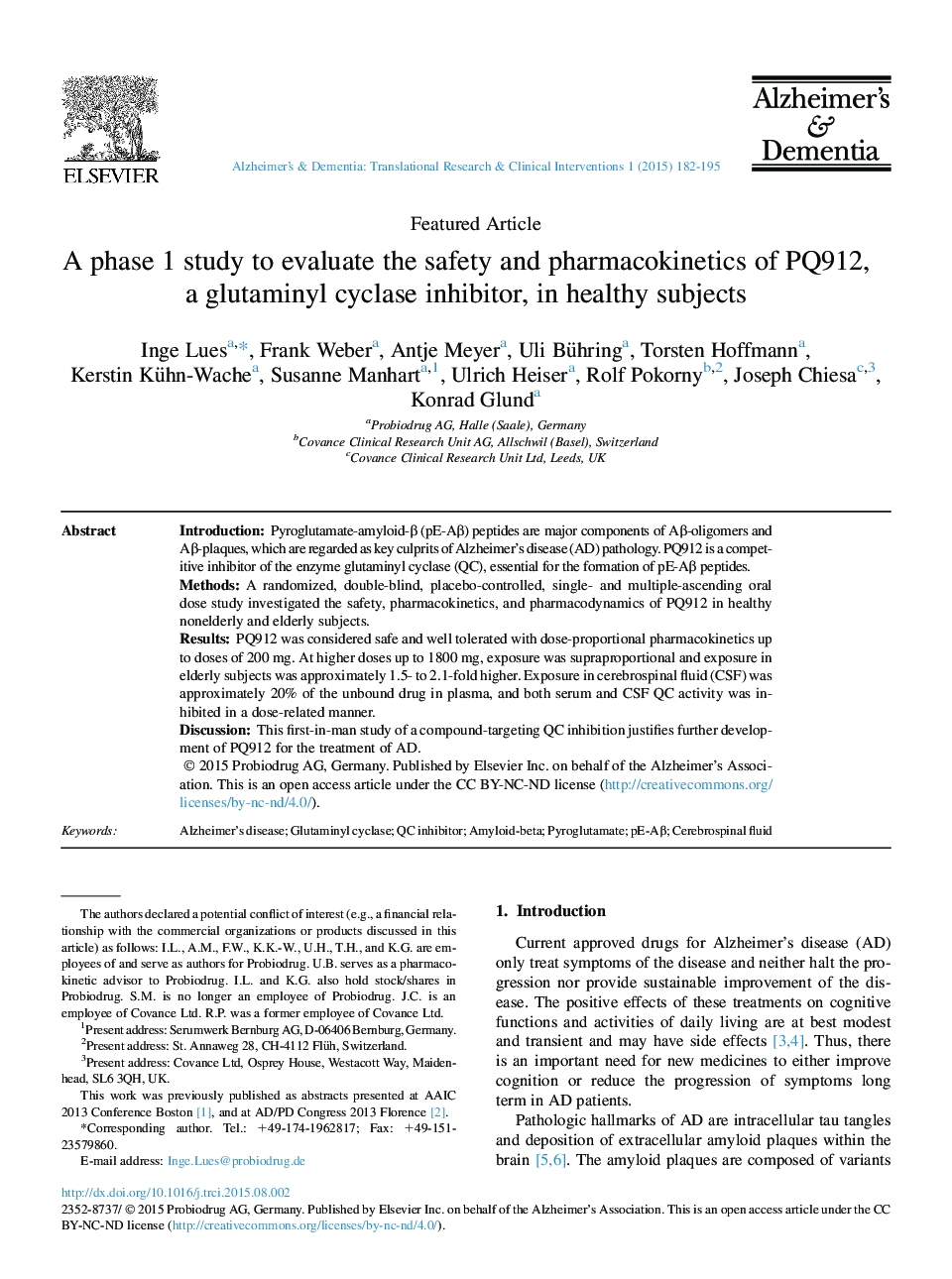| Article ID | Journal | Published Year | Pages | File Type |
|---|---|---|---|---|
| 3032113 | Alzheimer's & Dementia: Translational Research & Clinical Interventions | 2015 | 14 Pages |
IntroductionPyroglutamate-amyloid-β (pE-Aβ) peptides are major components of Aβ-oligomers and Aβ-plaques, which are regarded as key culprits of Alzheimer's disease (AD) pathology. PQ912 is a competitive inhibitor of the enzyme glutaminyl cyclase (QC), essential for the formation of pE-Aβ peptides.MethodsA randomized, double-blind, placebo-controlled, single- and multiple-ascending oral dose study investigated the safety, pharmacokinetics, and pharmacodynamics of PQ912 in healthy nonelderly and elderly subjects.ResultsPQ912 was considered safe and well tolerated with dose-proportional pharmacokinetics up to doses of 200 mg. At higher doses up to 1800 mg, exposure was supraproportional and exposure in elderly subjects was approximately 1.5- to 2.1-fold higher. Exposure in cerebrospinal fluid (CSF) was approximately 20% of the unbound drug in plasma, and both serum and CSF QC activity was inhibited in a dose-related manner.DiscussionThis first-in-man study of a compound-targeting QC inhibition justifies further development of PQ912 for the treatment of AD.
